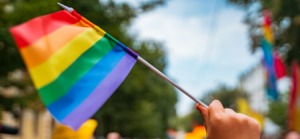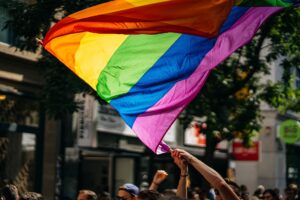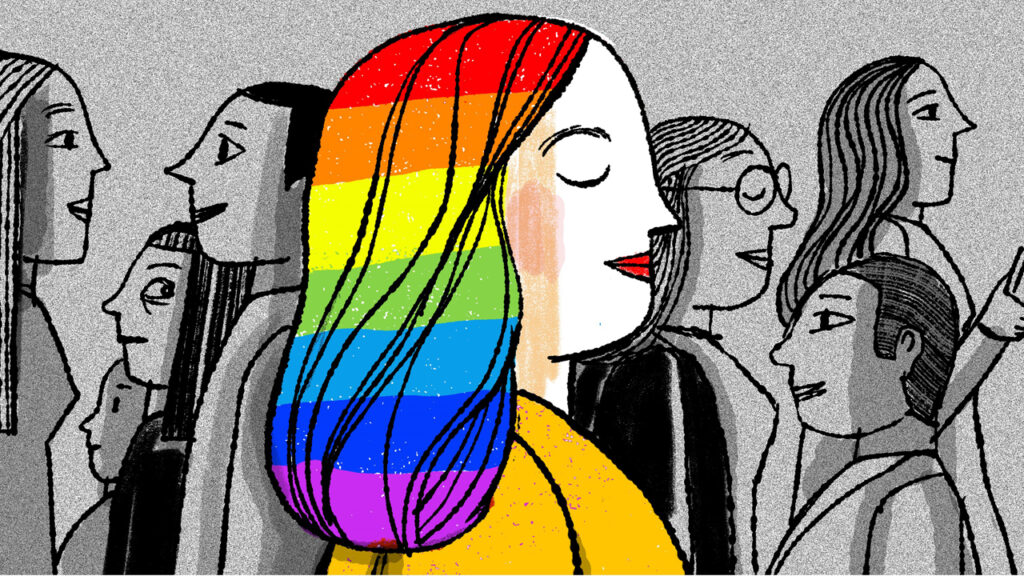As society progresses towards greater inclusivity and acceptance, it is crucial to shed light on the societal disadvantages faced by the LGBTQ+ community. LGBTQ+ stands for lesbian, gay, bisexual, transgender, and queer/questioning, and it represents a diverse group of individuals who identify with non-heterosexual orientations or non-binary gender identities. This article aims to explore the challenges and inequalities experienced by LGBTQ+ individuals, addressing issues such as discrimination, legal barriers, healthcare access, education, employment, and mental health.
Contents
Definition of LGBTQ+
The LGBTQ+ community encompasses a wide range of sexual orientations and gender identities. Lesbians are women attracted to other women, gay refers to men attracted to other men, bisexual individuals are attracted to both men and women, and transgender individuals have a gender identity that differs from their assigned sex at birth. The term “queer” is an inclusive umbrella term used by individuals who do not fit into traditional heterosexual or cisgender norms.
Importance of LGBTQ+ Rights

LGBTQ+ rights are of paramount importance for several reasons. Here are some key points highlighting the significance of LGBTQ+ rights:
- Equality and Human Rights: LGBTQ+ rights are fundamentally about recognizing and protecting the equal rights and dignity of all individuals, regardless of their sexual orientation, gender identity, or expression. Every person, regardless of their sexual orientation or gender identity, should enjoy the same human rights and opportunities as anyone else.
- Non-Discrimination: LGBTQ+ rights advocate for laws and policies that prohibit discrimination based on sexual orientation and gender identity. This ensures that LGBTQ+ individuals are not denied employment, housing, healthcare, or access to education and other essential services simply because of their sexual orientation or gender identity.
- Personal Freedom and Autonomy: LGBTQ+ rights are about the freedom to live authentically and openly, without fear of persecution or discrimination. It enables individuals to express their true identities and form meaningful relationships, helping them lead fulfilling lives.
- Mental Health and Well-being: Discrimination, stigma, and prejudice against LGBTQ+ individuals can have significant negative impacts on their mental health and well-being. Promoting LGBTQ+ rights fosters an inclusive society that supports the mental well-being of all individuals, regardless of their sexual orientation or gender identity.
- Social Progress and Cultural Diversity: Recognizing and respecting LGBTQ+ rights contributes to a more inclusive and diverse society. Embracing diversity fosters creativity, innovation, and social progress by harnessing the unique perspectives and talents of all individuals, irrespective of their sexual orientation or gender identity.
Societal Disadvantage of LGBTQ
These are some of the societal disadvantages of LGBTQ:
Discrimination and Stigma
One of the significant challenges faced by LGBTQ+ individuals is the prevalence of discrimination and stigma. Homophobia, transphobia, and biphobia continue to persist in various forms, including verbal abuse, physical violence, and social exclusion. Such discrimination can lead to emotional distress, fear, and a sense of alienation within society.
Legal Barriers and Inequality
Despite progress in LGBTQ+ rights, legal barriers and inequality persist. In many regions, laws fail to adequately protect LGBTQ+ individuals from discrimination in areas such as employment, housing, and public accommodations. Marriage equality and adoption rights may also be limited, denying LGBTQ+ individuals the same legal recognition and benefits as their heterosexual and cisgender counterparts.
Lack of Healthcare Access
LGBTQ+ individuals often face challenges in accessing appropriate healthcare. Discrimination or lack of knowledge among healthcare providers can lead to inadequate care or barriers to receiving essential services. Transgender individuals, in particular, may face hurdles in accessing gender-affirming healthcare, including hormone therapy and gender-affirming surgeries.
Challenges in Education and Employment
Education and employment opportunities can be affected by societal disadvantages faced by LGBTQ+ individuals. Bullying and harassment in educational settings can hinder academic achievement and contribute to higher dropout rates. In the workplace, LGBTQ+ individuals may face discrimination, bias, and limited career advancement opportunities due to their sexual orientation or gender identity.
Mental Health Issues
The societal disadvantages experienced by LGBTQ+ individuals contribute to higher rates of mental health issues within the community. Discrimination, prejudice, and social isolation can lead to anxiety, depression, and an increased risk of self-harm or suicide. Access to culturally competent mental healthcare and support services is crucial to addressing these challenges.
Social Exclusion and Isolation
LGBTQ+ individuals often face social exclusion and isolation, which can impact their overall well-being and sense of belonging. Discrimination and stigma can result in strained relationships with family, friends, and community, leading to feelings of loneliness and alienation.
Economic Inequality
LGBTQ+ individuals are more likely to face economic disadvantages due to discrimination in employment and workplace environments. They may experience wage gaps, limited job opportunities, and workplace harassment, leading to financial instability and higher poverty rates within the community.
Legal Vulnerability
In many countries, laws do not provide adequate protection for LGBTQ+ individuals, leaving them vulnerable to legal discrimination. This can manifest in the form of unequal marriage rights, limited adoption, and parenting rights, criminalization of consensual same-sex relationships, and lack of legal recognition for transgender individuals.
Violence and Hate Crimes
LGBTQ+ individuals are at a higher risk of experiencing violence, hate crimes, and targeted attacks due to their sexual orientation or gender identity. This includes physical assault, verbal abuse, bullying, and even murder. Such acts of violence contribute to a climate of fear and insecurity within the community.
Support and Acceptance for Societal Disadvantage of LGBTQ

Support and acceptance are vital in addressing the societal disadvantages faced by LGBTQ+ individuals. Here are some ways individuals and communities can contribute to fostering support and acceptance:
- Education and Awareness: Educate yourself and others about LGBTQ+ identities, experiences, and challenges. Understand the terminology, issues, and historical context surrounding LGBTQ+ rights. By increasing awareness, you can challenge stereotypes, dispel misconceptions, and promote empathy and understanding.
- Foster Inclusive Spaces: Create inclusive and safe spaces in your community, workplace, school, or social circles. Advocate for policies and practices that prohibit discrimination based on sexual orientation and gender identity. Encourage dialogue and respect for diverse perspectives, ensuring that LGBTQ+ individuals feel welcome and valued.
- Be an Ally: Stand up as an ally for LGBTQ+ individuals. Speak out against discrimination and prejudice when you witness it. Offer support, understanding, and validation to LGBTQ+ friends, family members, or colleagues. Amplify their voices and advocate for their rights.
- Support LGBTQ+ Organizations: Contribute to and support organizations that work towards LGBTQ+ rights and equality. These organizations provide crucial resources, services, advocacy, and community support for LGBTQ+ individuals. Donating your time, skills, or resources can make a significant difference.
- Engage in Dialogue: Engage in open and respectful conversations about LGBTQ+ issues. Encourage dialogue within your communities and social circles to challenge biases, misconceptions, and stereotypes. Listen to the experiences of LGBTQ+ individuals and learn from their perspectives.
- Support LGBTQ+ Youth: LGBTQ+ youth often face unique challenges. Offer support and understanding to young LGBTQ+ individuals who may be struggling with their identity or facing rejection. Advocate for LGBTQ+-inclusive policies and resources in schools and youth organizations.
- Challenge Homophobia and Transphobia: Call out and challenge homophobia, transphobia, and other forms of prejudice in your personal and professional spheres. Educate others on the harmful effects of discrimination and the importance of acceptance.
- Vote and Advocate for LGBTQ+ Rights: Support political candidates and initiatives that prioritize LGBTQ+ rights. Vote for legislation and policies that promote equality and protect the rights of LGBTQ+ individuals. Write to your representatives and express your support for LGBTQ+ rights.
Remember, creating a supportive and accepting society for LGBTQ+ individuals requires ongoing efforts.
Conclusion
The societal disadvantages experienced by the LGBTQ+ community highlight the urgent need for greater inclusivity and equality. Discrimination, legal barriers, healthcare disparities, challenges in education and employment, and mental health issues are obstacles that must be addressed. Support networks, acceptance, the role of allies, and advocacy efforts all contribute to creating a more inclusive society. We must continue to strive for equality, celebrate diversity, and ensure that the rights and well-being of LGBTQ+ individuals are protected.
Life may sometimes be challenging for people from the LGBTQ community, but Online LGBTQ Counseling can help. Get experienced LGBTQ therapists at PrideMantra: Book a trial LGBTQ therapy session.


